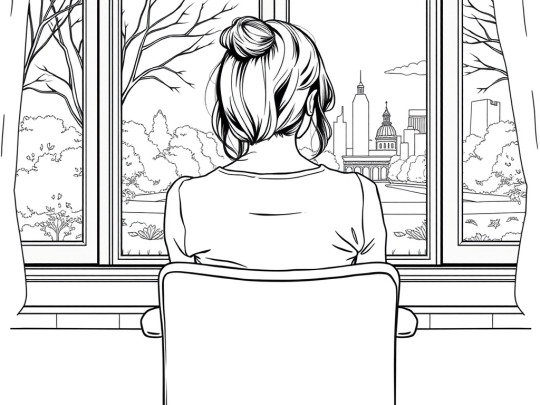#killing myself fr. make me code a linux distribution from scratch next why dont you
Explore tagged Tumblr posts
Text

i have to code an entire configurable simulated cache memory for a college assignment and make multiple reports with graphs for performance comparisons with citations in formal book formatting on top of having to learn new content for this specific class later AND study for the next two tests PLUS the content of the other class with its own content. due june 29th
I'm so fucked. I'm done for. I'm too fucking stupid for this. leave me to die in peace. I'm already crumbling as I type
#WHY IS IT ALWAYS BEFORE ARTFIGHT TOO. RAAARGHH#obviously i have to try but i might as well have failed the whole class already. this is insane#and mr jackass is due to come back home and room what little joy i have left too#killing myself fr. make me code a linux distribution from scratch next why dont you#dextxt
3 notes
·
View notes
Text
Not Just Ill: Redefining My Chronic Condition

Dealing with an invisible chronic illness isn’t easy. Beyond the fatigue, physical pain, and brain fog, there’s another layer of struggle: people don’t see how unwell you are. They see the outside—maybe a sun-kissed face, some makeup, a well-put-together outfit, a warm greeting—and they draw their own conclusions.
They see you show up at a birthday party and think, “She must be doing better.” They don’t know that you had to sleep for two hours beforehand and will now be in bed—or glued to the couch—for the next three to five days because you went. They ask how you're doing, and you say, “I'm fine.” Not because it’s true, but because sometimes you're simply tired of talking about being sick.
In my case, I really do get sick of talking about being sick.
So yes, people sometimes assume I’m better than I am. Some may even think I exaggerate my illness. After all, lots of people are tired—and they still get up and go to work. Why can’t I?
It’s okay. I understand how society copes with things it can’t see or make sense of: it labels, defines, reduces. It filters experience through its own lens so the unfamiliar becomes manageable. Living with an invisible illness for the past five years has taught me to tune out those voices. I’ve learned to define myself based on my own sense of worth, not the value placed on me by others.
When ‘Illness” becomes “Disability”
Still, that definition of self took a jolt last week. While doing research for my book on invisible illnesses, I came across something unexpected: several major health organizations now classify my condition as an invisible disability. That word stopped me cold.
According to the World Health Organization’s World Report on Disability (2011), disability is defined using the International Classification of Functioning, Disability and Health (ICF), which breaks down functioning into three interconnected categories:
Impairments: problems with body function or structure
Activity limitations: difficulties in executing tasks or actions
Participation restrictions: challenges with involvement in life situations
Disability, then, isn’t about one diagnosis—it’s about how health conditions interact with personal and environmental barriers to limit engagement in life. The ICF uses neutral language and doesn’t distinguish between physical or mental origins. If your condition affects your ability to function and participate fully, it qualifies.
Suddenly, I found myself staring at the screen thinking: Wait. You mean I’m disabled?
The word “disability” has always carried a specific image in my mind—something concrete, visible, undeniable. I never thought to put my illness, or any chronic illness, in that category. Illness felt like a challenge, something to fight, to manage, to overcome. Disability felt... definitive. Permanent.
But that’s the thing: having a chronic illness is a disability. It impacts my ability to participate in society. It limits what I can do. It interferes with basic functioning. And it’s real, whether people see it or not.
Seeing the Unseen
According to Hidden Disabilities Sunflower, one in six people globally live with a disability. Of those, an estimated 80% are non-visible. That’s over a billion people, most of them unseen—and undervalued. Yet every one of them has something meaningful to offer. We want to engage. We want to be included. We deserve the space to contribute.
Maybe “disability” is a better word after all. “Illness” often implies recovery is coming, or should be. There’s an unspoken apology in it, a pressure to heal. “Disability,” on the other hand, demands society’s acceptance. It calls for accessibility, empathy, and policy that affirms our worth.
So here I am: a woman with an invisible disability. And an awful lot to give—to those who acknowledge my boundaries, honor my integrity, and respect my value.
Maybe it’s time we all reconsider what disability really looks like—and who we assume doesn’t carry it.
If you enjoy reading my insights and would like to stay updated on my latest posts, please subscribe to my blog for email notifications. Subscription is free!
Source: Not Just Ill: Redefining My Chronic Condition
44 notes
·
View notes